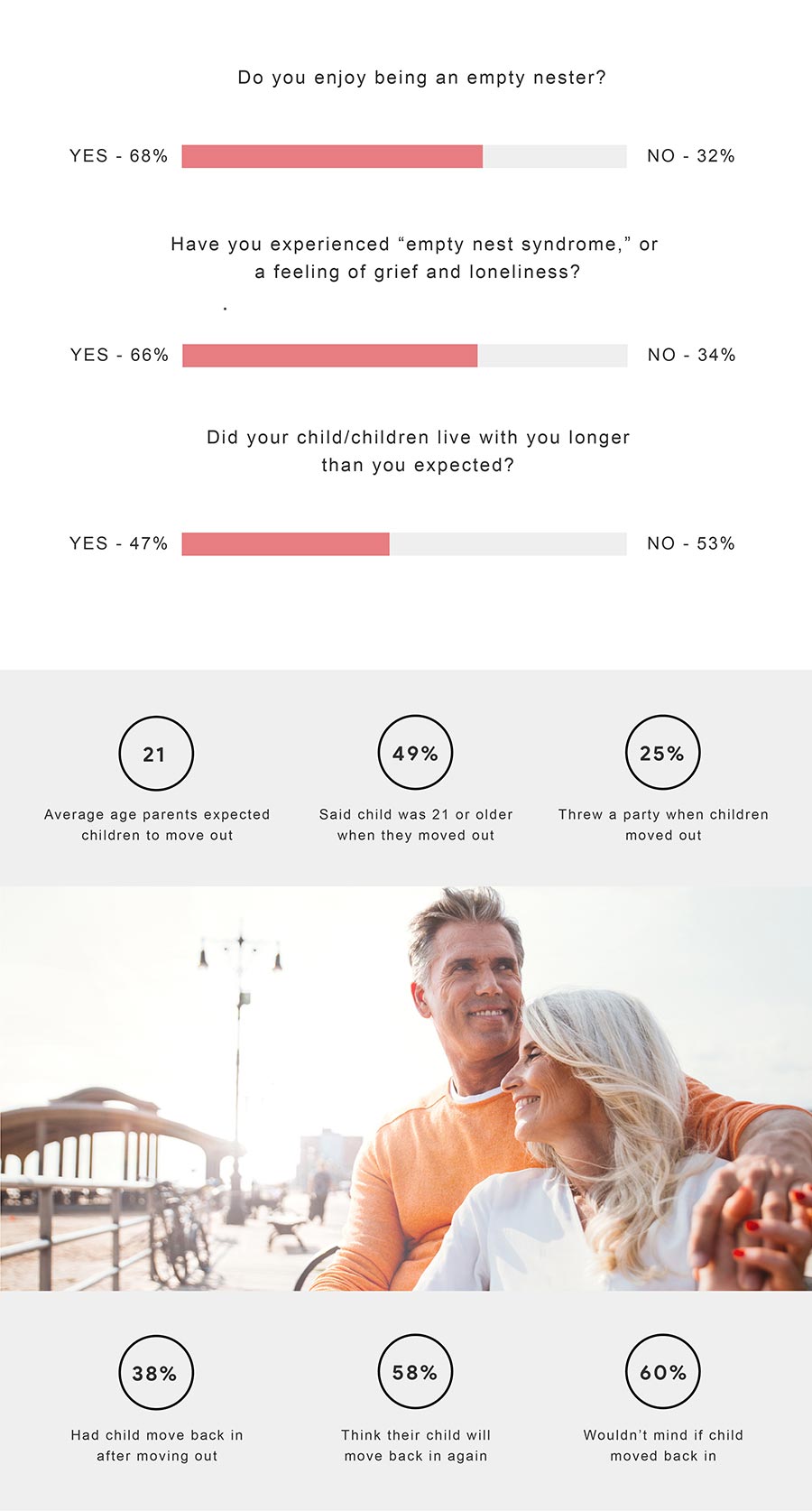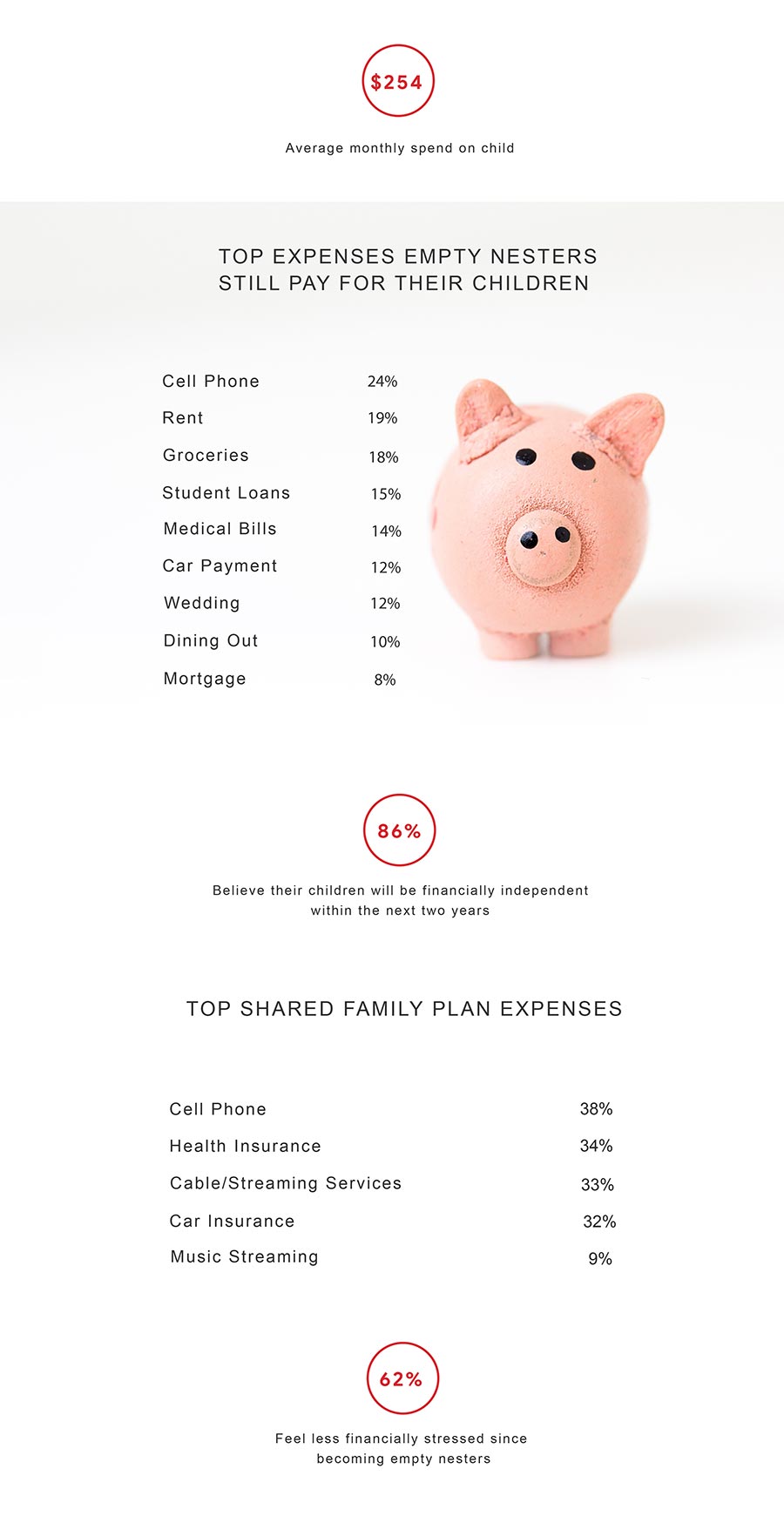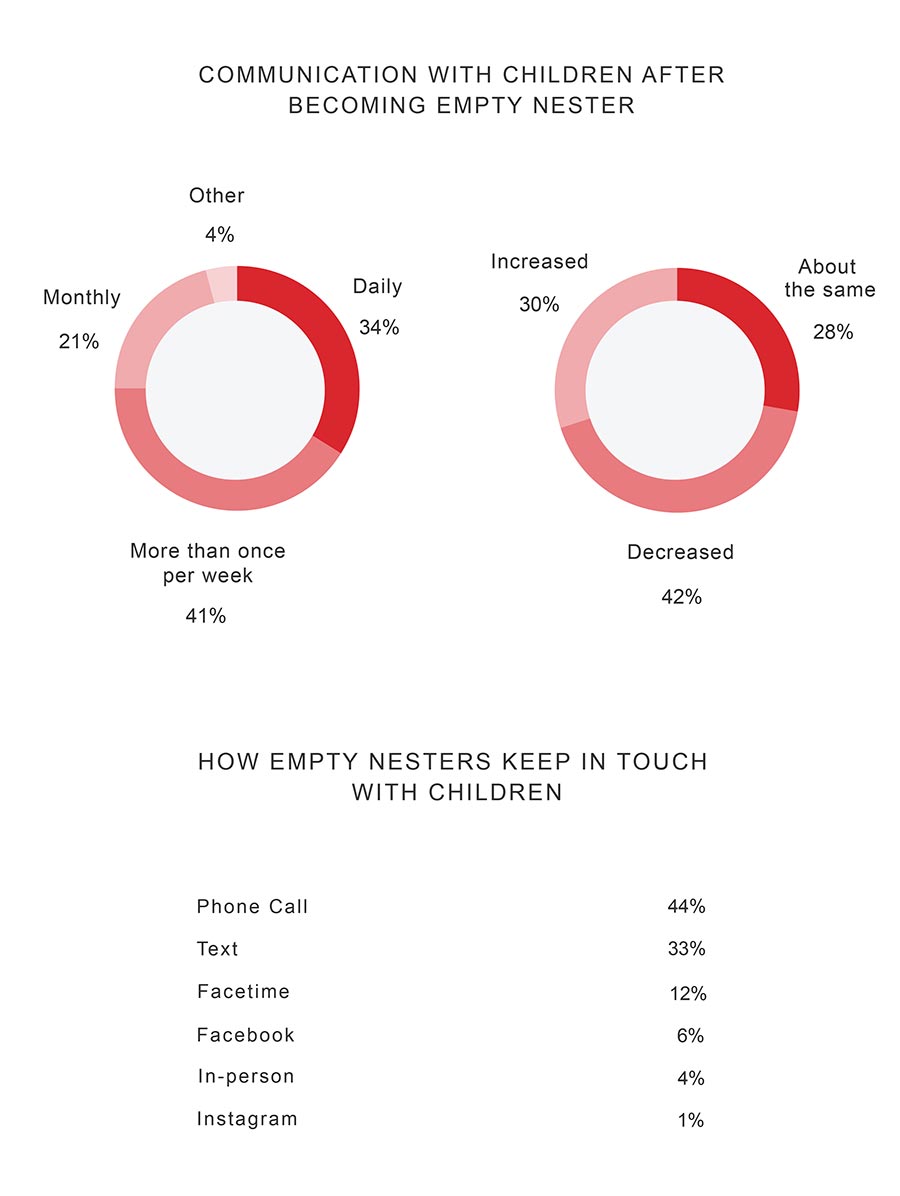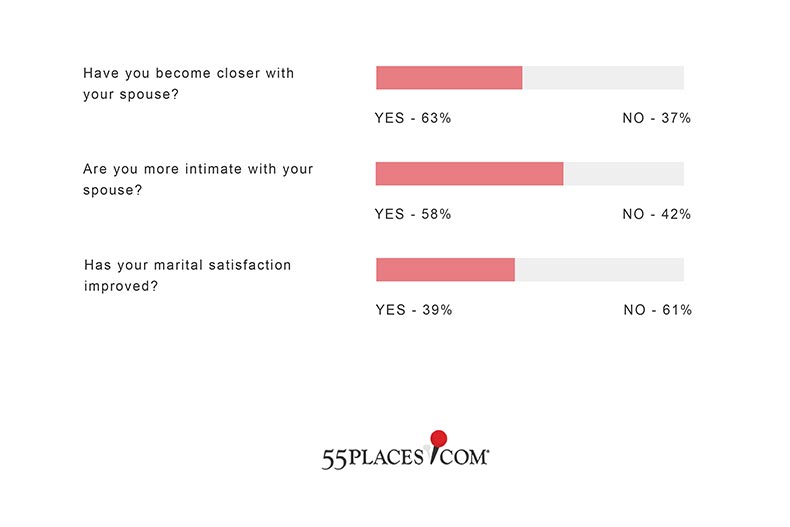
According to respondents, becoming an empty nester is bittersweet. Nearly 70 percent of empty nesters surveyed said they enjoy their lifestyle, but 66 percent have experienced “empty nest syndrome,” or a feeling of grief and loneliness since their children moved out of the house.
Extended Stay
Millennials have been known to live longer with their parents than previous generations and it certainly shows in our survey. Nearly half of those surveyed said their child or children lived at home longer than they expected. The average age parents expected their children to move out was 21, but 49 percent said their child was 21 or older by the time they actually left the nest. What’s even more surprising is how many kids are moving back in after they moved out. According to respondents, 38 percent had their child move back in and nearly 60 percent think their child or children will move back in again at some point.
Financial Support

While empty nesters may taste newly-found freedom, their wallets still seem to be tethered to their children. According to respondents, nearly 40 percent are still financially supporting their children in some way. Of those, parents still spend an average of $254 per month on their child or children. Some of the top expenses that respondents said they still pay for include cell phone (24 percent), rent (19 percent), groceries (18 percent) and student loans (15 percent). Despite still paying for their children’s expenses, 86 percent believe their children will be financially independent within the next two years.
Overall, empty nesters said they are saving money since their children moved. Exactly 50 percent said they are saving more for retirement, but 23 percent said saving for retirement is still their biggest financial stress since becoming an empty nester, which was followed by making the mortgage payment (17 percent).
Keeping in Touch

Even with the kids moved out, parents still prefer to keep in touch on a regular basis, and sometimes it’s even on a daily basis. A total of 34 percent of respondents said they communicate with their children every day and 41 percent keep in touch more than once per week. Since moving out, 30 percent of empty nesters said communication with their children increased. A good old-fashioned phone call is the primary way parents prefer to talk, followed by text (33 percent) and Facetime (12 percent).
In terms of seeing their kids in-person, 25 percent said they see their kids multiple times per month while 24 percent said they only see them a few times during the year, such as during the holidays.
Rekindling the Flame

Being an empty nester certainly has its pros and cons. Even though the house might be quieter, it doesn’t mean parents aren’t enjoying it. According to respondents, more than 80 percent said they have more freedom and 59 percent have discovered a new hobby or rediscovered an old one.
There’s also more time to rekindle the flame with their spouse. Overall, 80 percent said they’ve been spending more one-on-one time with their spouse, 63 percent said they’ve become closer with their spouse, and more than half (58 percent) said they are now more intimate with their spouse since the kids moved out.
Methodology
From June 28 through July 12, 2019, we surveyed 1,860 empty nesters. 61 percent of respondents were female and 39 percent were male, and the average age of respondents was 49 years old. 77 percent were married.
For media inquiries, contact [email protected].







